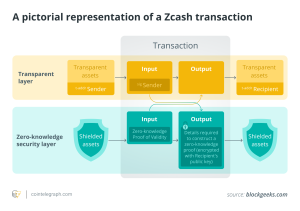US DOC agency NIST explores security, safety, trust of stablecoins
2 min read

The National Institute of Standards and Technology (NIST) found that the top five coins that retained their peg represented 87 % of the total top 20 market capitalization.
The National Institute of Standards and Technology (NIST), a non-regulatory agency of the United States Department of Commerce, released an initial public draft highlighting the various security considerations in relation to the architecture and implementation of stablecoins.
Based on the study of the top 20 stablecoins over the past year, NIST found that the top five coins that retained their peg represented 87 % of the total top 20 market capitalization. Out of the lot, the top 5 stablecoins based on market capitalization that managed to maintain their pegs are listed below.

Coincidentally, all five tokens are pegged to the U.S. dollar and sported a mean minimum value of $.9934 (-0.66 %) and a maximum minimum value of $.9871 (-1.29 %) over the duration of the study.
NIST also highlighted the death spiral of TerraUSD (UST), the third-largest stablecoin by market capitalization at the time of the study, which lost its peg in May 2022. Some of the security concerns raised by the report include unauthorized or arbitrary minting, collateral theft, smart contract vulnerabilities, data oracles and exploiting the underlying blockchain.
Considering the trust bestowed onto the stablecoin issuers, NIST suspects that creators, maintainers, and managers of stablecoin systems could use their privileged status to be deceptive or malicious towards investors and holders. While concluding the findings, NIST stated:
“This security analysis found that two stablecoins that function almost identically in third-party markets and enable the buying and selling of goods with coins at a pegged price can have vastly different risk profiles.”
According to NIST, centralized finance (CeFi) architectures are more vulnerable to trust issues due to a greater reliance on human trustworthiness, while decentralized finance (DeFi) is typically more vulnerable to security issues due to increasing smart contract code complexity and critical functionality.
Related: Stablecoins shed $38B since May as yields plunge, projects collapse
On Oct. 3, the Department of Justice (DOJ) objected to Celsius’ motion to reopen withdrawals for select customers and sell its stablecoin holdings. According to U.S. Trustee for the DOJ, William Harrington,
“The Motions are premature and should be denied until after the Examiner Report is filed. First, the Withdrawal Motion seeks to impulsively distribute funds to one group of creditors in advance of a fulsome understanding of the Debtors’ cryptocurrency holdings.”
Concluding the discussion, Harrington asserted that the motion should not be considered until the filing of the examiner report, noting that “any distribution or sale should be deferred until interested parties, the United States Trustee, and the Court are able to make a determination” on the value of Celsius liabilities, claims against it, its assets and what “the debtors intends to actually pay its creditors.”






